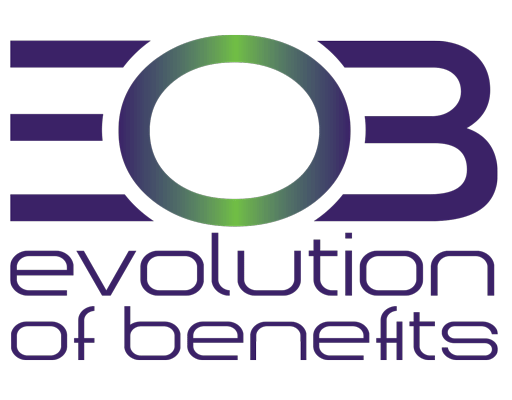Live Well, Work Well – What To Know About The Powdered Infant Formula Recall

If you use powdered infant formula, be aware certain Similac, Alimentum and EleCare products have been recalled and should not be used.
The FDA has published a full list of recalled brands. Recalled products should no longer be available for sale; however, check the packaging if you have them in your home to determine if they are included in the recall.
Which powdered infant formula products have been recalled?
Abbott Nutrition has recalled certain powdered infant formula products produced at its Sturgis, Michigan, facility. Products from that facility can be found across the United States, and some were exported to other countries. Here’s how you can tell if you have any of those products.
The FDA recommends consumers look at the lot code, a multidigit number on the bottom of a container of Similac, Alimentum and EleCare powdered infant formula. Do not use the product if all of the following are present:
- The first two digits of the code are 22-37
- The container code contains K8, SH or Z2
- The expiration date is 4-1-2022 or later
View and download the latest Live Well, Work Well newsletter
Posted on May 23, 2022 by Evolution of Benefits
Live Well, Work Well – Resources To Help Find Infant Formula During The Shortage

To address the infant formula shortage amid medical device and health care company Abbott Nutrition’s voluntary recall of certain powdered infant formulas, the Biden administration is working to ensure that formula is safe and available for families across the country. President Biden spoke with several retailers and manufacturers—including Walmart, Target, Reckitt and Gerber—to discuss ways to get formula quickly and safely onto store shelves. He also announced a series of actions to make formula more accessible, including cutting red tape on the types of formula parents can buy, calling on the Federal Trade Commission and state attorneys general to crack down on price gouging and unfair market practices, and increasing formula supply through increased imports.
If you cannot readily find formula, the U.S. Department of Health and Human Services (HHS) suggests consulting the following resources.
Manufacturer Hotlines
- Gerber’s MyGerber Baby Expert—Reach a certified nutrition or lactation consultant by phone, text, Facebook Messenger, web chat or video call who can help you identify a similar formula that may be more readily available.
- Abbott’s Consumer Hotline—Call 1-800-986- 8540.
- Abbott’s urgent product request line—Ask your OB-GYN or your infant’s pediatrician to submit an urgent product request by downloading and completing this form.
- Reckitt’s Customer Service line—Call 1-800 BABY-123 (222-9123).
View and download the latest Live Well, Work Well newsletter
Posted on May 23, 2022 by Evolution of Benefits
Live Well, Work Well – Elevating Your Psychological Resiliency

Psychological resilience refers to the ability to mentally withstand or adapt to uncertainty and adversity. Building resilience to life’s inevitable changes and challenges can help you cope with and manage stressors. Resilience can also help protect you from various mental health symptoms. As the pandemic rolls into year three, health care professionals are noticing stress and anxiety developing into greater mental health concerns. Mental Health Awareness Month, observed annually in May, is a great time to check in on your feelings and thoughts.
Psychological resilience can help positively stabilize mental health during the COVID-19 pandemic.
Protecting Your Vision
- Get a regular exam.
- Wear protective eyewear.
- Put your shades on.
- Don’t smoke.
- Give your eyes a break.
View and download the latest Live Well, Work Well newsletter
Posted on April 25, 2022 by Evolution of Benefits
Live Well, Work Well – Nip Seasonal Allergies in the Bud

More than 50 million Americans suffer from allergies every year. In particular, springtime allergies are an annual nuisance for many people. As plants begin to bloom and neighbors start to cut their grass more frequently, allergy sufferers nationwide start sniffling and sneezing. What’s more, mold growth blooms both indoors and outdoors, making it almost impossible to escape allergy triggers.
Allergies are the sixth leading cause of chronic illness in the United States, according to the American College of Allergy, Asthma and Immunology.
Alleviating Seasonal Allergies
- Wash your bedding every week in hot water to help keep pollen under control.
- Wash your hair before going to bed since pollen can accumulate in your hair.
- Limit the number of throw rugs to reduce dust and mold in your home.
- Wear an inexpensive painter’s mask and gloves when cleaning, vacuuming or painting to limit skin exposure and dust and chemical inhalation.
- Vacuum twice a week.
- Make sure the rugs you have are washable.
- Change air conditioning and heating air filters often.
View and download the latest Live Well, Work Well newsletter
Posted on March 31, 2022 by Evolution of Benefits
Live Well, Work Well – Understanding Your Kidney Health

A new variant of coronavirus is prompting renewed concern regarding the pandemic. The World Health March is National Kidney Month, making it a great time to take charge of your health to lower your chances of developing kidney disease. Your kidneys filter your blood to remove waste and extra water to create urine. They also make vital hormones that produce red blood cells, promote bone health and regulate your blood pressure. As such, the kidneys play a vital role in your body.
Kidney-friendly Tips
- Get tested.
- Reduce over-the-counter drug usage.
- Exercise regularly.
- Eat a healthy diet and monitor your weight.
- Drink plenty of fluids.
View and download the latest Live Well, Work Well newsletter
Posted on February 28, 2022 by Evolution of Benefits
Live Well, Work Well – How to Make and Keep Your New Year’s Resolution

A new variant of coronavirus is prompting renewed concern regarding the pandemic. The World Health Organization (As the new year approaches, you may find yourself reflecting on the past year. This introspection is a significant first step toward selecting a New Year’s resolution to help you grow as a person. However, 80% of New Year’s resolutions fail by mid-February due to a lack of self-discipline, according to U.S. News and World Report. That’s why it’s important to set yourself up for success when you’re choosing a resolution.
Fitness, finances, and weight loss are often the three most popular New Year’s resolutions.
Don’t Let Winter Derail Your Workout
The Health Benefits of Being Organized
View and download the latest Live Well, Work Well newsletter
Posted on January 3, 2022 by Evolution of Benefits
Live Well, Work Well – Understanding the Omicron Variant

A new variant of coronavirus is prompting renewed concern regarding the pandemic. The World Health Organization (WHO) named the new variant “Omicron.” Omicron is labeled a “variant of concern,” the agency’s serious category for tracking. Such a designation is reserved for dangerous variants that may be more transmissible or virulent or could decrease the effectiveness of vaccines or treatments.
The Emergence of Omicron
- How easily does Omicron spread?
- Will Omicron cause more severe illness?
- Will vaccines work against Omicron?
- Will treatments work against Omicron?
Tools to Fight Omicron
- Vaccines remain the best public health measure to protect people from COVID-19, slow transmission and reduce the likelihood of new variants emerging.
- Masks offer protection against all variants of COVID-19.
- Tests can tell you if you are currently infected with COVID-19.
View and download the latest Live Well, Work Well newsletter
Posted on December 15, 2021 by Evolution of Benefits
Understanding the Flu Season and COVID-19 – Live Well, Work Well

This year’s influenza (flu) season is expected to be active amid the COVID-19 pandemic. Flu season usually begins in October and peaks between December and February. As we’re amid the second flu season during the pandemic, it’s even more important for you to take precautions to prevent both the flu and COVID-19 from spreading.
This article features frequently asked questions (FAQs) prepared by the Centers for Disease Control and Prevention (CDC) about the seasonal flu and COVID-19.
- What is the difference between the flu and COVID-19?
- Will there be the flu along with COVID-19 in the fall and winter?
- Can I have the flu and COVID-19 at the same time?
- If I get sick with the flu, am I at a higher risk of contracting COVID-19?
- Because symptoms of the flu and COVID-19 are similar, how will I know if I have the flu or COVID-19?
- Is there a test that can detect both the flu and COVID-19?
- Will a flu vaccine protect me against COVID-19?
- Does a flu vaccination increase my risk of getting COVID-19?
- I think I may have the flu. Is it safe for me to visit my health care professional when COVID-19 is spreading in my community?
View and download the latest Live Well, Work Well newsletter
Posted on December 1, 2021 by Evolution of Benefits
Tips for Healthy Holiday Travel During a Pandemic – Live Well, Work Well

As the holidays approach and COVID-19 vaccination eligibility expand to younger children, many Americans may be making plans to travel. According to Tripadvisor, 55% of Americans plan to travel this winter, which is a 5% increase from those who traveled last winter. Not surprisingly, the most popular travel dates are the Thanksgiving and Christmas holidays. Additionally, the majority of Americans planning to travel this winter will remain stateside.
If you’re planning to hit the road or the skies this holiday season, there are some general tips to keep you safe while traveling:
- Get vaccinated.
- Stay domestic.
- Take a road trip.
- Check travel restrictions.
- Manage your stress levels.
- Keep up with COVID-19 safety precautions.
- Pack the pandemic essentials.
View and download the latest Live Well, Work Well newsletter
Posted on December 1, 2021 by Evolution of Benefits
Celebrating Holidays Safely During the COVID-19 Pandemic – Live Well, Work Well

Holiday traditions are important for many families, and we’re about to enter the second holiday season during the pandemic. Recently, the Centers for Disease Control and Prevention (CDC) released guidelines for safely celebrating this year’s holiday season. The CDC’s top advice is for eligible Americans to get the COVID-19 vaccine before gathering and traveling for the holidays.
More than three-quarters of eligible Americans have received at least one dose of a COVID-19 vaccine, according to CDC data.
View and download the latest Live Well, Work Well newsletter
Posted on November 30, 2021 by Evolution of Benefits
Client and Employee Resources
![]() The more your employees understand your benefit plans the more they become educated, empowered consumers. The programs you provide will also gain an enhanced value.
The more your employees understand your benefit plans the more they become educated, empowered consumers. The programs you provide will also gain an enhanced value.
As your strategic partners in employee benefits, we can provide multiple avenues of ongoing support, including:
- Employee Meetings (English and Spanish)
- Webcasts
- Payroll Stuffers
- Poster Campaigns
- Newsletters
Recent Posts
- Career Elevator: The Importance of Peer-to-Peer Praise (November) November 27, 2024
- In the Loop – November November 21, 2024
- Benefits and Me: Maximizing Your Open Enrollment (November) November 19, 2024
- HR Brief – OSHA Proposes Heat Injury and Illness Prevention Standard (November) November 14, 2024
- Mental Health Minute (November) November 7, 2024
- American Diabetes Month (November) November 6, 2024
- Benefits Buzz – Final Forms and Instructions for 2024 ACA Reporting Now Available November 4, 2024
- Live Well, Work Well – Fall Into Mindfulness (November) November 4, 2024
- Recipe of the Month – Beef and Bean Chile Verde (November) November 3, 2024
- Compliance Tracker – October November 1, 2024
Newsletter and Article Categories
E-Verify is a web-based system that allows enrolled employers to confirm the eligibility of their employees to work in the United States. Click the image below to begin.




















